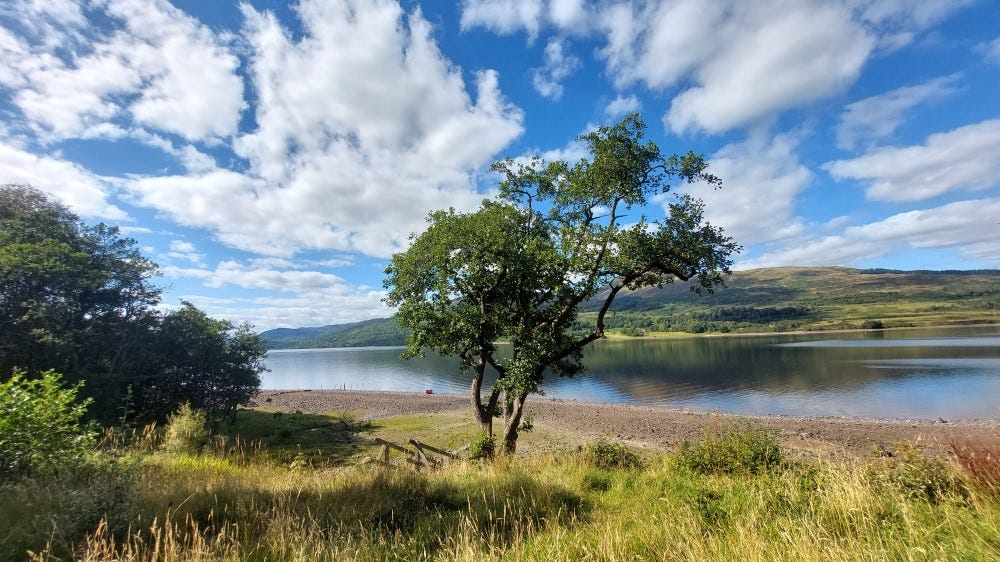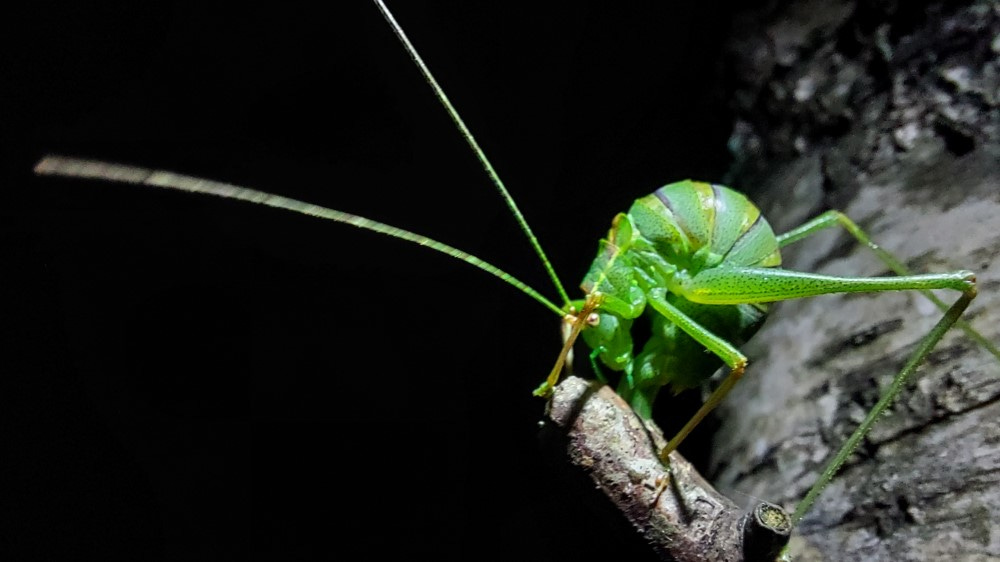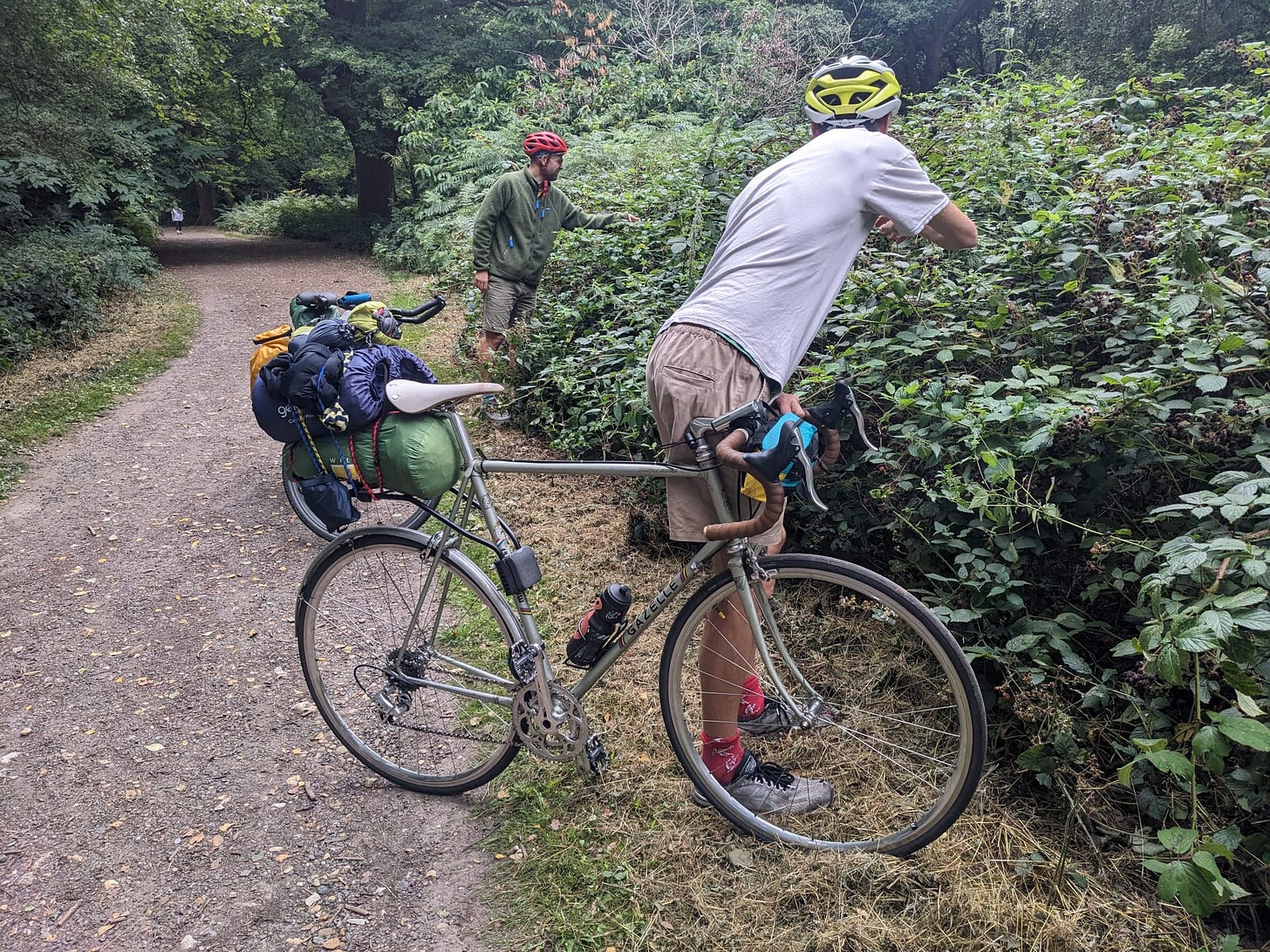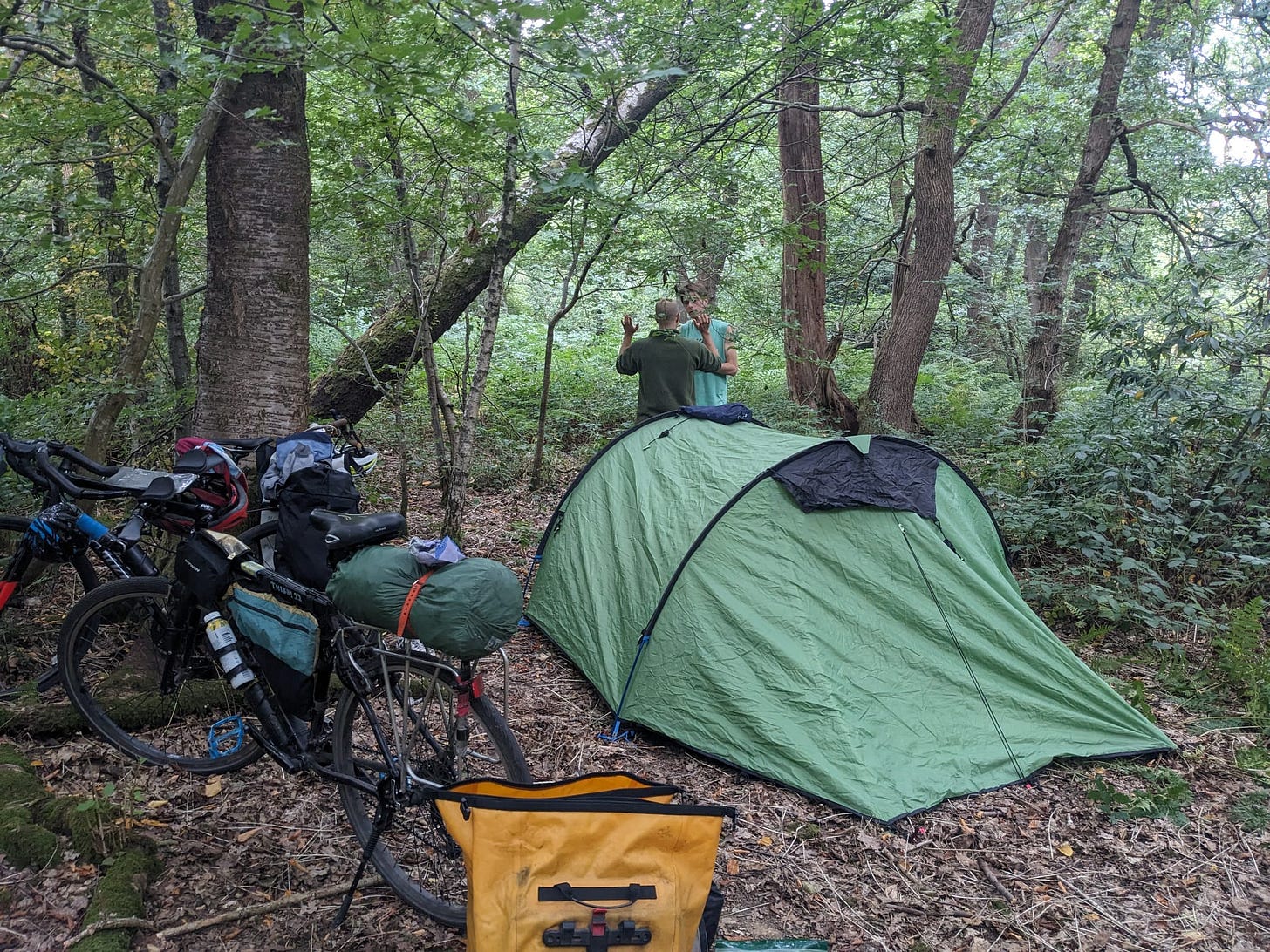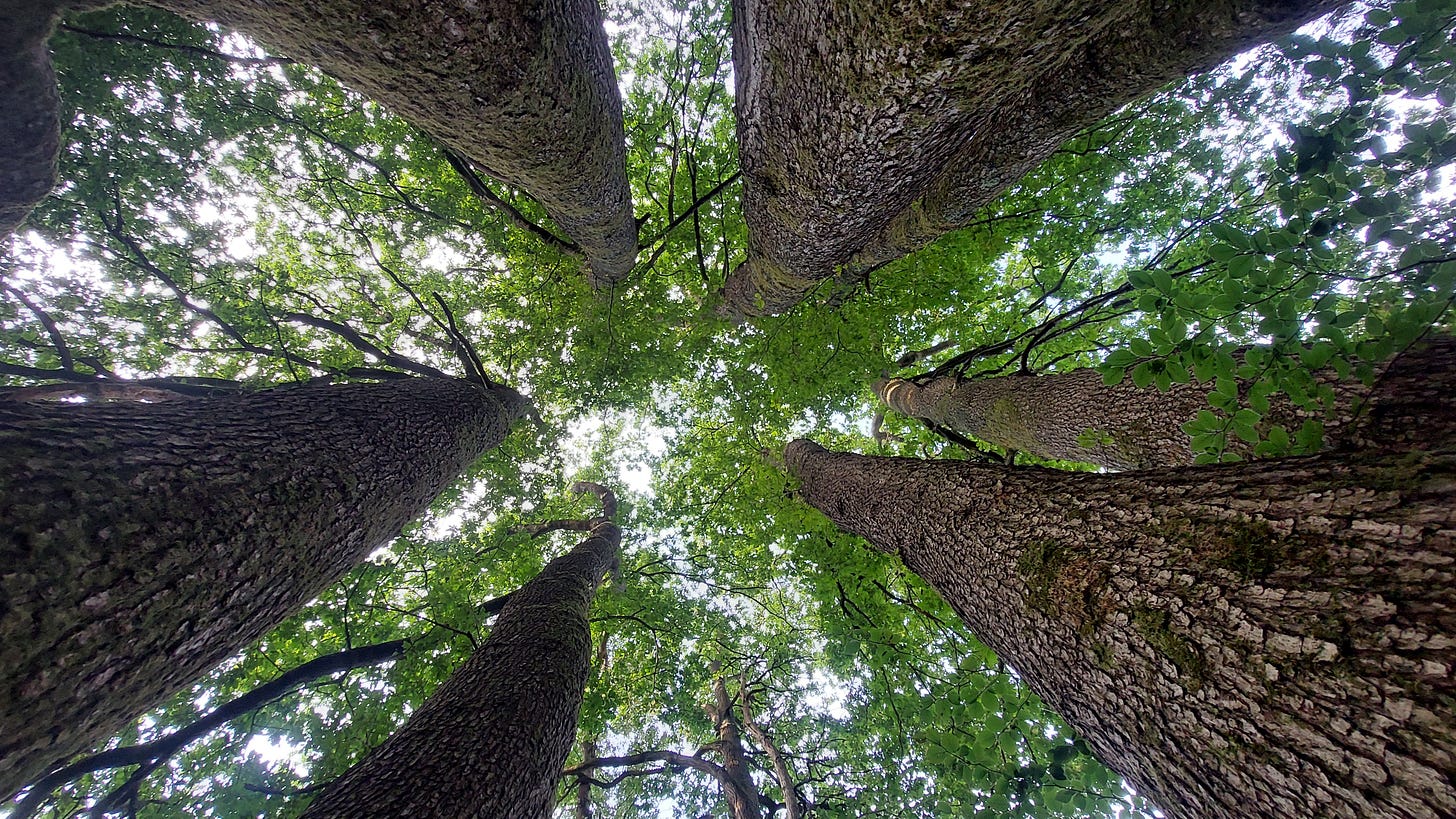Self-Care Not Working? Try Adventure
There’s a lot to be said for a steady salary, a loving home life and a game that involves throwing sticks at other sticks
Happy Feels Like Friday!
And a warm welcome from the Loch.
For those of you new around these parts, welcome 👋 My name is David and I’m a writer, outdoor instructor, cyclist-at-large with Thighs of Steel, Expeditions Manager at British Exploring Society, and Advanced Wilderness Therapeutic Guide in training.
Yes, that is too many hats.
In this newsletter, I write stories that help you and me understand the world (and ourselves) a little better.
Sometimes I run away to Scotland. Sometimes I make adventure closer to home.
Self-Care Not Working? Try Adventure
Two years ago today, I was cycling through Croatia with a gang of mates, on our way, for the second year in a row, from Glasgow to Athens.
Ludicrously, this was my actual job.
These days, I work a full-time desk job in London. Occasionally I get to drive a van up and down the M6, but the closest I come to adventure on the day-to-day is a lunchtime game of Mölkky.
I’m not complaining — there’s a lot to be said for a steady salary, a loving home life and a game that involves throwing sticks at other sticks — but I’d be lying if I said it hasn’t been a bit of an adjustment.
Sometimes the combination of London + Screens + Commute + Responsibility leaves me feeling down, dull and drained, burnt out to a flicker. And it’s only Wednesday.
No big deal, I’m told: take a hot bath, take an iced tea, take a spa day, take a holiday.
When did you first hear the term ‘self-care’? Chances are it wasn’t in the 1820s. Or the 1920s. Chances are it was only in the last decade or two.
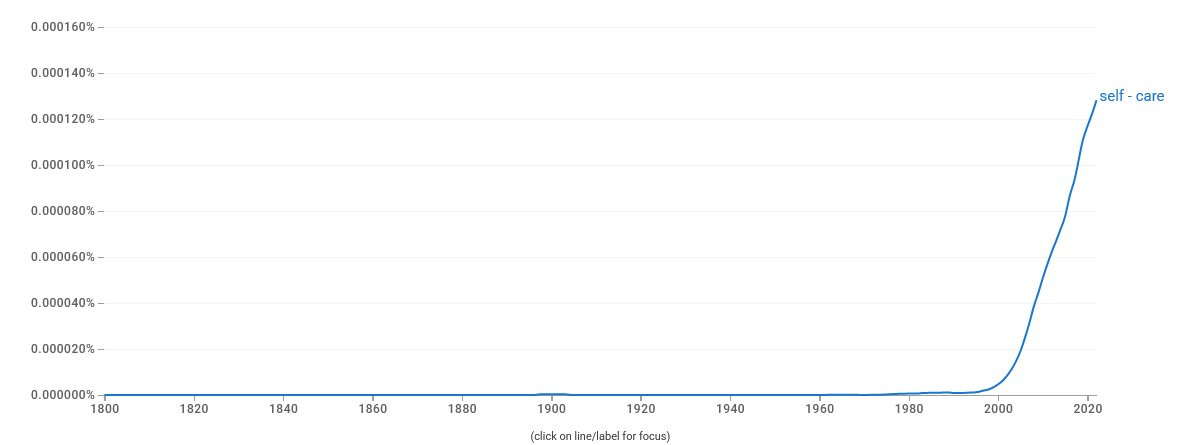
Self-care today is hot baths, gong baths, forest bathing, meditation, mindfulness, scented candles, flower arranging, origami, yoga, chocolate ice cream, foot massages, napping, showering, shaving, manicuring, a new haircut, baking, painting, pottery classes, podcasts, essential oils, gratitude, affirmations, boundary-setting, communities, laughter yoga, ASMR, prayer beads, mandalas, macramé, adult colouring, art therapy and dream journals.
It’s all really great stuff — revolutionary, even, for people typically excluded from access to self-care under racist, sexist, capitalist political norms.
As ‘black lesbian feminist warrior mother’ Audre Lorde wrote in A Burst of Light:
But self-care doesn’t fix everything. It doesn’t come close to curing my kind of runaday burnt out.
Mid-week at work I’m not burnt out like a engine that’s been revved too hard for too long; I’m a camp fire guttering on wet logs.
I don’t need recovery, I need fuel — I need adventure.
Wednesday, 5.30pm. I logged off, clocked off and took off, me and a couple of friends on bikes.
Our last adventure together was cycling hundreds of kilometers across Albania back in 2019. Now we all have grown-up jobs in London, my friends with three young kids between them, lucky to have partners happy to handle bedtime alone.
An adventure is still an adventure, an exception to the tyrannical rules of bedtime.
In this case: an evening ride to the edge of London. We didn’t even cross the M25. We still found what we needed.
We cycled until dark, picked up an oily tandoori to eat by headtorchlight, then pushed into the woods to camp out.
It was already late by the time we’d pitched our tents in the tended wilderness of a managed open access woodland, up the hill from an expensive commuter belt suburb.
Professional footballers live here, we’re told.
We’re middle aged now. We sat in a triangle on the woodland floor, switched off our headtorches and shared thoughts on parenthood, friendship and adventure. We drank herbal tea. I photographed a sleeping grasshopper.
Two of us have kids at home. A night away is the exception, the adventure — but it’s also for sleeping undisturbed through the night.
We curled up like the grasshopper, until the early dogwalkers woke us.
Thursday, 8am. We packed up, carried out, and caught the first train back to the city.
We’re now back at our desks, bleary eyed, but no more so than after any other late curry night with friends in town.
One night only. It was nothing. It was everything.
Self-care not working? Try adventure.
Side bar: An open question on wild camping in suburbia
Wild camping in southeast England isn’t uncomplicated. There are more than a few complications and it’s unhelpful to start with the most obvious: it’s illegal without the permission of the landowner.
I have wild camped in southeast England both with and without the landowner’s permission and it’s rarely the decisive factor in the choice of an appropriate campsite.
Most of the time it’s not possible to determine the landowner without a trip to the land registry — I’m not camping on garden lawns or even on farmland.
Wild camps tend to be on common land, pockets of land with open access to the public, or in woodlands managed by public bodies.
There aren’t many of these around London, but perhaps more than you think. A legally enshrined right of responsible access that respects privacy, crops and nature would help.
Putting ownership aside, my thinking is nowadays more guided by considerations for the permanent residents: trees, birds, mammals, insects.
London and southeast England is, by an order of magnitude, the most densely populated area of the UK.
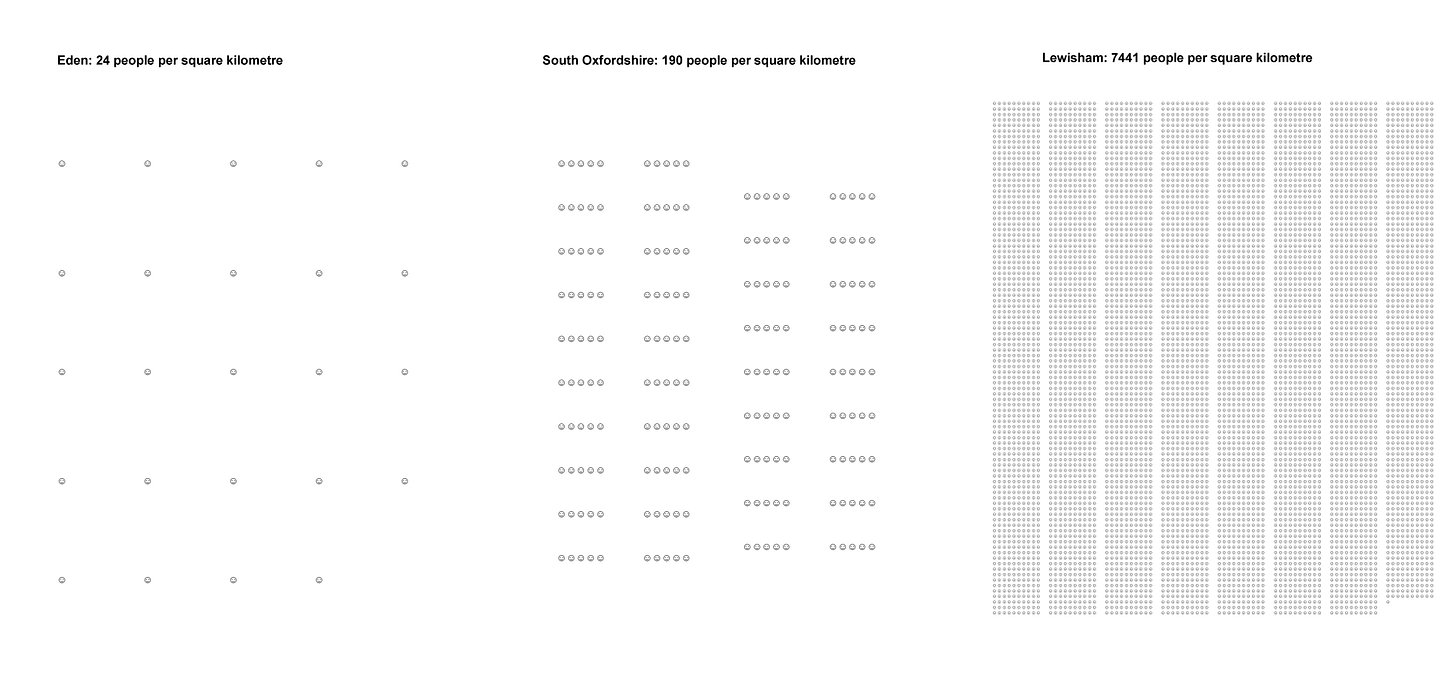
You could take these illustrations as evidence that wild camping in the southeast is irresponsible: one final indignity imposed on the last refuges of a harried non-human population.
But, while our night in the suburb woodland felt adventurous — just the tonic for worn out screensouls, there was never any question that humans were still the dominant species there, closely followed by their pet dogs.
In the balance between the needs of humans and the needs of nature, what more damage would we inflict with a night in a beauty spot so obviously still a part of the urban landscape?
In contrast, it’s easy to believe that wild camping in wilder places is easier on the native non-humans because of our relative scarcity. But is that true?
Our suburban woodland has, at least, adapted to side-by-side human domination, in a way that the more remote quarters of our national parks have not.
Does that make suburbia the more appropriate destination for people looking for overnight restoration?
This is an open question. I don’t know. What might the nightjar say?
Thank You
Huge thanks to all the paying subscribers who helped make this story possible. You know who you are. Thank you. 💚
If you enjoyed this one, then go ahead and tell me. It’s the only way I’ll know. You can tap the heart button, write a comment, share the newsletter with friends, or simply reply to this email.
If you’re not into the whole Substack subscription thing, then you can also make a one-off, choose-your-own-contribution via PayPal. That’d make my day.
As always, thank you for your eyeballs and thanks for your support.
diwyc,
dc:

